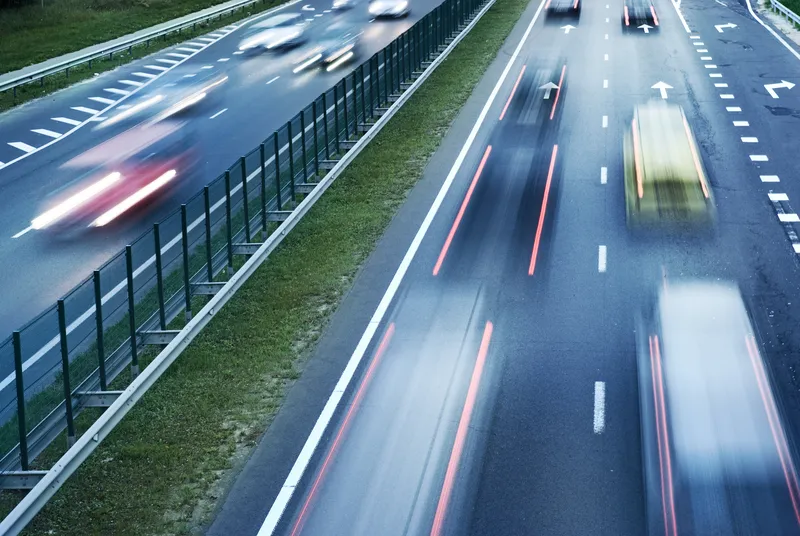Euro NCAP (New Car Assessment Programme) has published the results of its survey on the availability of autonomous emergency braking (AEB) systems in Europe and reveals that its vehicle safety rating assessment programme will include AEB technologies in its star rating from 2014. Real world performance data suggests AEB systems can reduce accidents by up to 27 per cent. Although the introduction of these active safety technologies is reducing road deaths and injuries, the availability of AEB in Europe is fa
June 14, 2012
Read time: 3 mins
Euro NCAP (New Car Assessment Programme) has published the results of its survey on the availability of autonomous emergency braking (AEB) systems in Europe and reveals that its vehicle safety rating assessment programme will include AEB technologies in its star rating from 2014.
Real world performance data suggests AEB systems can reduce accidents by up to 27 per cent. Although the introduction of these active safety technologies is reducing road deaths and injuries, the availability of AEB in Europe is far from standardised. A recent survey undertaken by Euro NCAP reveals that AEB is completely unavailable on 79 per cent of the car models on sale in Europe and that 66 per cent of manufacturers do not offer an AEB system on any of their new car models.
Autonomous Emergency Braking systems can help to avoid crashes or to mitigate their severity by warning the driver and supporting his braking response and/or by applying the brakes independently. The technology generally uses forward-looking radar, lidar and video systems to provide a complete, accurate, real-time image of the road ahead. Since 2010, several car manufacturers have been recognised for the safety benefits of their AEB systems through Euro NCAP Advanced rewards.
Euro NCAP finds that premium brands such as609 Volvo, 4777 Infiniti and 1685 Mercedes have the best levels of standard AEB fitment, and are joined by 3883 Jaguar, 5921 Range Rover, 2125 Audi and 4349 Lexus when optional fit is also considered. Cars in the executive and large family categories have the highest level of availability, at least as an option. However, some volume sector manufacturers are showing that AEB can be offered as standard or as an affordable option on mass-market vehicles. Amongst others, 1844 Mazda, 278 Ford, 1683 Honda and 994 Volkswagen are selling AEB systems partly as standard or optional on some high-volume cars such as the Mazda CX-5, the Ford Focus, the Honda Civic and the VW Up. It is understood that 1674 Fiat will also make AEB a low-cost option on the new Panda in July 2012. AEB systems are increasingly being made available as cars are replaced by new or face-lifted models, such as the Mercedes-Benz A-Class, the Ford Fiesta and Ford Kuga.
According to Michiel van Ratingen, secretary general of Euro NCAP, “A faster penetration of these technologies into new cars will make it more realistic for the European Union to reach its target to cut road deaths by 50 per cent by 2020. Consequently, Euro NCAP has decided to include AEB assessments as part of the overall star rating from 2014 onwards and hopes that European authorities will soon require AEB as mandatory on all new vehicle types.’
Real world performance data suggests AEB systems can reduce accidents by up to 27 per cent. Although the introduction of these active safety technologies is reducing road deaths and injuries, the availability of AEB in Europe is far from standardised. A recent survey undertaken by Euro NCAP reveals that AEB is completely unavailable on 79 per cent of the car models on sale in Europe and that 66 per cent of manufacturers do not offer an AEB system on any of their new car models.
Autonomous Emergency Braking systems can help to avoid crashes or to mitigate their severity by warning the driver and supporting his braking response and/or by applying the brakes independently. The technology generally uses forward-looking radar, lidar and video systems to provide a complete, accurate, real-time image of the road ahead. Since 2010, several car manufacturers have been recognised for the safety benefits of their AEB systems through Euro NCAP Advanced rewards.
Euro NCAP finds that premium brands such as
According to Michiel van Ratingen, secretary general of Euro NCAP, “A faster penetration of these technologies into new cars will make it more realistic for the European Union to reach its target to cut road deaths by 50 per cent by 2020. Consequently, Euro NCAP has decided to include AEB assessments as part of the overall star rating from 2014 onwards and hopes that European authorities will soon require AEB as mandatory on all new vehicle types.’







